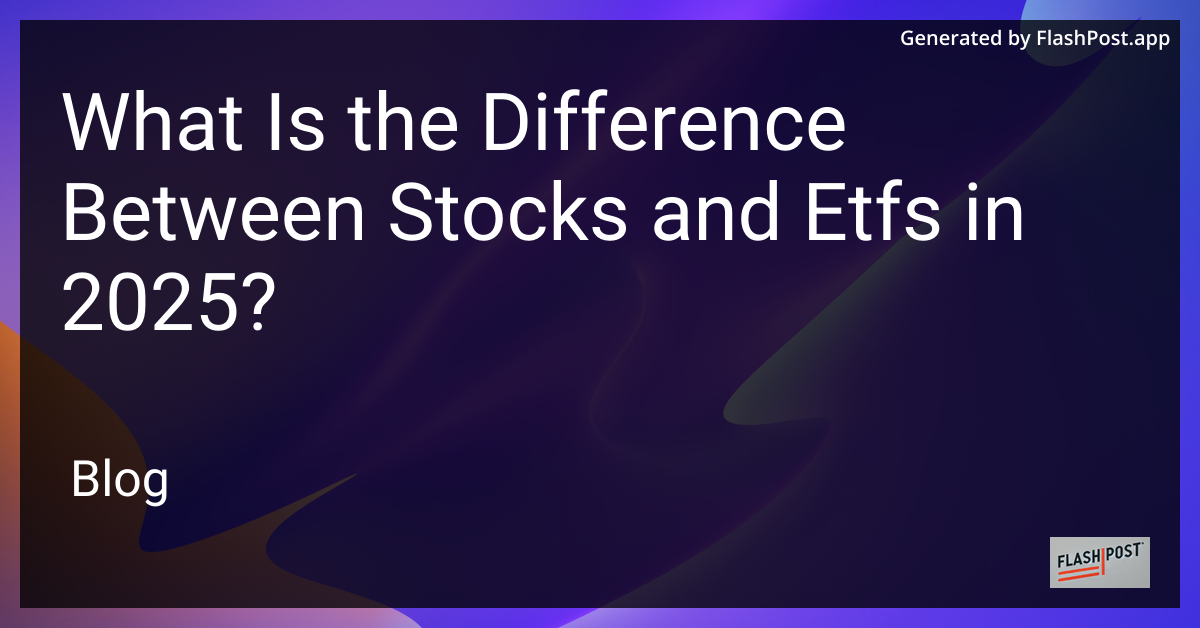As we step into 2025, understanding the financial landscape continues to be of paramount importance for both novice and seasoned investors. Two investment vehicles that often capture the attention of individuals looking to grow their wealth are stocks and Exchange-Traded Funds (ETFs). Though both options can be lucrative, they are inherently different in structure, strategy, and purpose. Let's delve into these critical differences to help you make informed decisions about your investments.
Understanding Stocks
Stocks represent shares of ownership in a company. When you buy a stock, you are purchasing a piece of the company, making you a shareholder. Stocks can be categorized into different types, such as growth stocks or value stocks, each with unique characteristics and potential returns. Investors typically buy stocks with the hope that the company's value will increase, allowing them to sell their shares at a higher price in the future.
Introducing ETFs
ETFs, on the other hand, are investment funds that trade on stock exchanges, much like stocks. They hold assets such as stocks, commodities, or bonds, and generally track an underlying index. ETFs offer a convenient way to diversify your portfolio because they cover a wide range of market sectors. This allows investors to gain exposure to an entire market or sector through a single investment.
Key Differences
The primary distinction between stocks and ETFs lies in their structure and flexibility. Stocks involve higher risk because they depend on the performance of a single company, whereas ETFs are relatively safer due to their diversified nature. Additionally, while individuals investing in stocks might engage in short selling strategies to capitalize on declining markets, ETF investors focus more on long-term growth and income generation.
Regulatory Perspective in 2025
In 2025, the regulatory environment for both stocks and ETFs continues to evolve. Governments and financial institutions worldwide are focusing on implementing policies that aim to enhance transparency and protect investors. As a result, both investment options are becoming more accessible and secure for the average investor looking to invest.
Conclusion
Deciding whether to invest in stocks or ETFs in 2025 largely depends on your financial goals, risk tolerance, and investment strategy. Stocks could offer substantial returns but come with increased risk, whereas ETFs provide a balanced approach with diversification benefits. As always, conducting thorough research and consulting with financial advisors is recommended to align your investment choices with your long-term financial objectives.
